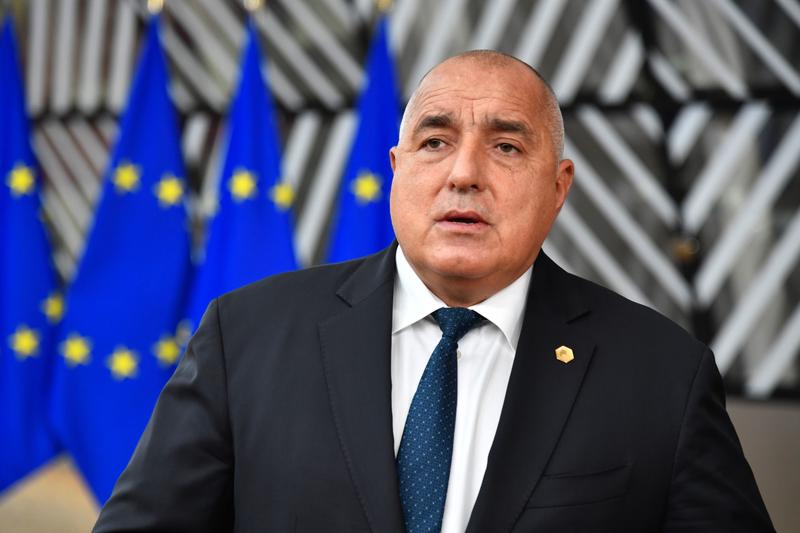 Boyko Borissov, Bulgaria's prime minister, speaks to journalists as he arrives at a European Union (EU) leaders summit in Brussels, Belgium, on Dec 10, 2020. (PHOTO/BLOOMBERG)
Boyko Borissov, Bulgaria's prime minister, speaks to journalists as he arrives at a European Union (EU) leaders summit in Brussels, Belgium, on Dec 10, 2020. (PHOTO/BLOOMBERG)
Bulgarian Prime Minister Boyko Borissov’s party won Sunday’s elections, but thorny ties with his political rivals complicated his path to a fourth term as leader of the European Union’s poorest and most corrupt member.
Already one of the EU’s longest-serving leaders, the former bodyguard of the Balkan state’s last communist dictator capitalized on support from conservative voters drawn to his brusque man-of-the-people style. Critics say he has done little to crack down on endemic graft or improve living standards for Bulgaria’s 7 million people.
The main rivals to Borissov’s Citizens for the European Development of Bulgaria party, known as Gerb, have vowed not to cooperate with it - or each other - in any governing alliance.
READ MORE: Bulgarians elect new parliament amid COVID-19 fears
With the route to forming a new government uncertain, Borissov called on his rivals to unite to help Bulgaria emerge from a resurgence in the coronavirus pandemic, rebuild the economy and prepare to spend EU funds earmarked for Bulgaria.
The main rivals to Boyko Borissov’s Citizens for the European Development of Bulgaria party have vowed not to cooperate with it - or each other - in any governing alliance
“That’s my offer to everyone,” Borissov said on Facebook just hours after voting ended. “Let’s see if we can unite for the good of the country.”
Gerb won 24.2 percent, according to partial results with 42 percent counted. There Is Such a People, a newly formed group led by populist talk-show host Stanislav Trifonov, won 19 percent, in front of the opposition Socialists, which had 14.9 percent. The results resembled exit polls released after the close of voting stations. As many as six parties looked poised to enter parliament.
“In such a fragmented parliament, it’ll be very hard” to form a government, Boryana Dimitrova, a managing partner at Alpha Research, told BNT. “Either someone will have to cross boundaries and make compromises that were unacceptable until now, or the parliament will have a very short life.”
President Rumen Radev should first give a mandate to form a government to the election winner. If it fails, the second-biggest party gets a turn. If that doesn’t work, a third party, chosen by the president, is given a chance before a new election is called.
Transparency International ranks Bulgaria last in the EU for endemic graft, and the EU has criticized it for failing to uphold the rule of law. Meanwhile, gross domestic product per capita, when adjusted for relative purchasing power, is just over 50 percent of the EU average.
ALSO READ: Thousands protest against Bulgarian government, scuffle with police
Still, Borissov has also been adept at balancing the nation’s interests between historical ally Russia and the West. He has embraced NATO and the EU while former eastern bloc peers Hungary and Poland engage in open conflict with Brussels.
His government also boasts one of the bloc’s lowest debt levels and narrow budget deficits. Borissov campaigned on keeping taxes low, improving the distribution of EU funds and adopting the euro in 2024, a process that, along with joining the EU’s passport-free Schengen travel zone, has been delayed by concerns over graft.


